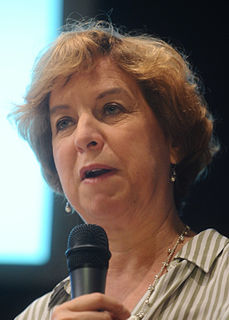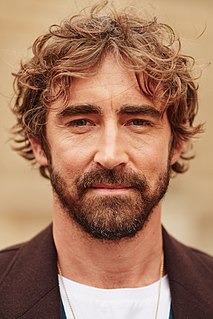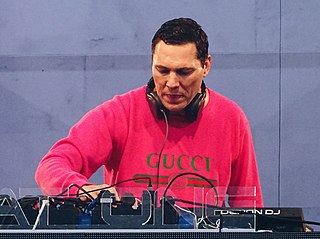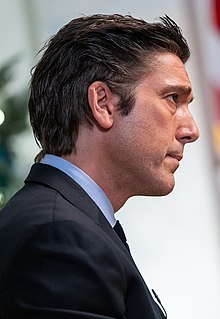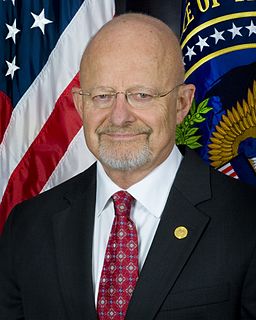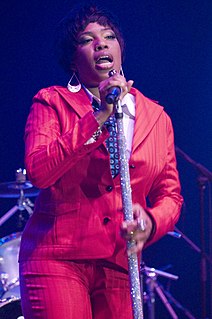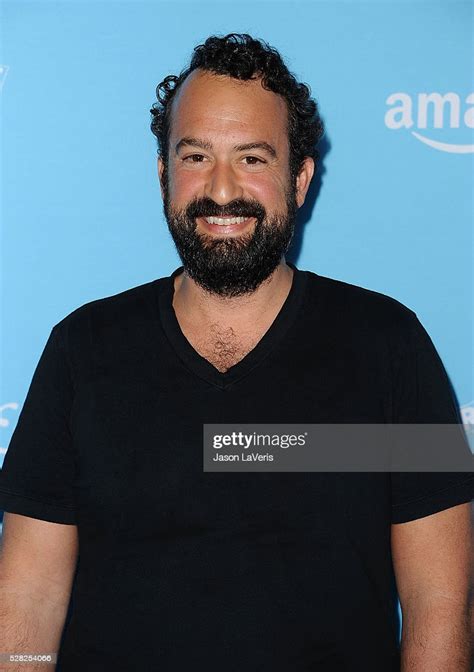A Quote by Vivian Schiller
There's a lot of definitions flying around of what we mean when we say fake news. And there's also a lot of pitfalls and I think some misguided recommendations that are out there about what Facebook and Twitter and the others should and shouldn't do. It's very difficult and I, you know, recommend sort of very thoughtful slow going for everyone.
Related Quotes
I'm very, very serious about what I do. I think there are a lot of people out there sort of thinking it's anybody's game. You know, "You pick up a camera and you make a movie." My experiences over the years have taught me there's a lot more than that to making a film - there's also getting the film seen, and all kinds of complex realities.
As an actor, you are sort of only in charge of yourself. All you can really control is your performance. You don't know what they're going to do with it in the editing room, what they're going to cut out, which take they're going to use. You know, your control is very limited. As a director, it's ultimately your piece. You have a lot more responsibility, but you also have a lot more creative control. It's scary, but also liberating in a way.
I love Twitter, you know? I try to read everything I can on Twitter. You get so much nice feedback about stuff, you know you just put out a sentence and everybody laughs or everybody's just sending something back. It's amazing. Same with Facebook, you know? I'm a lot on Facebook and it's just - it's just amazing. And YouTube, of course, as well.
To me, when one is writing sometimes about a very specific subject with very specific people, I feel like if that story doesn't cross over, it's not working. That's very beautiful to me, to be sitting in Berlin and there's an actor reading my book in German. I don't even know what's going on, except I know to feel my own rhythms in another language and say, "If this is going well, I think everyone should laugh around now." Then maybe there's laughter, and for me, it reminds me of how story can move around the world.
We had a general awareness, for example, of Russian use of social media - Facebook ads, use of Twitter, fake news implants - we had a general understanding of that. But now, as time has elapsed and time has gone on, I've certainly learned a lot more about the depth and breadth of what the Russians were about.
I mean, in many ways, you know, I felt very connected to Ian (Dury) on, on a lot of levels. I mean, politically, & sort of, socially, our, kind of, social backgrounds are quite similar in many ways, as well as our kind of artistic endeavors. So there were many, many things that sort of chimed in for me, and kind of made me feel very instinctive about playing him, and, and although, there was sort of a certain amount of impression involved, actually, there's a lot of myself in the role.
The funny thing about Facebook and Twitter is, you can go on there and see what's going on in the world without watching the news. I get so much news off of social media. I think it's cool. It's changed everything, not just music. It's changed the world. It definitely is a good thing. I don't really know what I think of it yet more than that. I haven't really sorted that out for myself.
At least with [Hillary] Clinton, you know, there was some degree of transparency. There was some sense of what's going on here, and a lot to be very alarmed about, whether it's the - you know, the Prince Bandar and, you know, the princes of Saudi Arabia, or Bahrain, or the Russians that she enabled to acquire 20 percent of our uranium supply. I mean, really outrageous stuff. The arms deals, et., a lot of grave concern.
True to their history, the English are very domineering and have manipulated it in different ways. I wouldn't say that there was an original, but there is a lot of expurgation in some of the Victorian translations, and there's a lot of additional salacious nonsense in some of them, too. I also like the early French one, much-derided for being fanciful but which is actually very elegantly done. It's very big, very capacious.
I really became aware of the fact that, oh yeah, whereas a lot of other shows are sort of cynical or jaded or just sort of coming from that sort of energy, our show is very, very about these love-based relationships. It really comes out, a lot of times, in a sweet way. And I think people find that refreshing about our show. That's one of the things I definitely picked up on.
